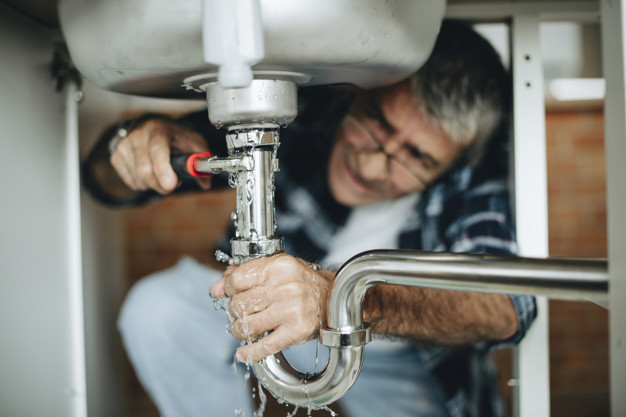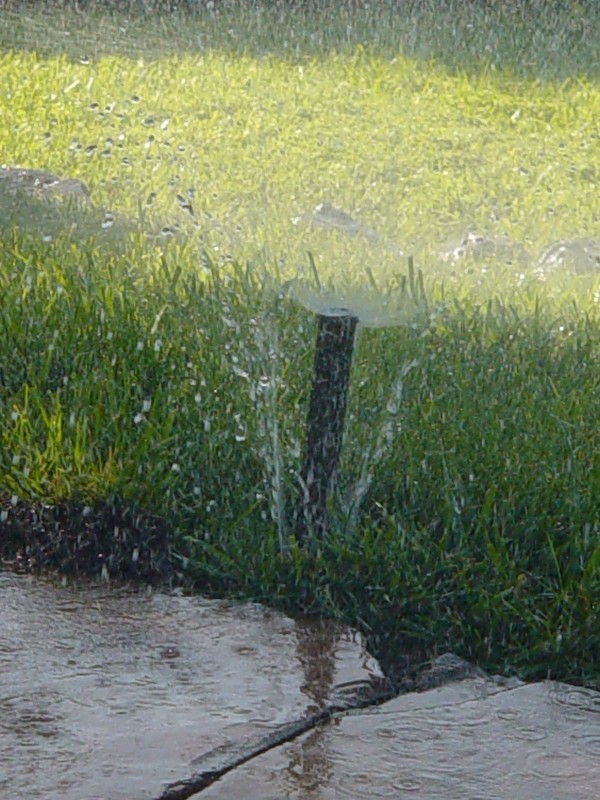The 5 Frequent Water Leak Sources
The 5 Frequent Water Leak Sources
Blog Article
Right here in the next paragraph yow will discover a good deal of excellent tips relating to Where to Find Water Leaks.

"Be careful of little expenses. A little leak will sink a great ship." - Benjamin Franklin.
He could not have actually been extra best since water leaks in our houses lead to a waste of resources, enhancing our water bills. This boost may appear minimal at initially, it can lead to considerable expenses that can break your bank. Other than a rise in bills, water leaks additionally create unwanted organic development, architectural damages, as well as also electrical dangers.
If you have a water leak isn't always simple due to being unable to see most of the pipework in your residence, figuring out. If you have had a boost in your water costs recently, saw water spots on ceilings as well as walls, scented lousy smell, etc. You could intend to take into consideration asking for plumbing solutions to get it checked out.
There are numerous reasons for water leaks, and we have actually compiled the usual reasons listed below. Check to see if you have had relevant concerns in your house lately.
Obstructed drains
Food bits, dust, and also grease can cause clogged up drains and also block the passage of water in and out of your sink. Boosted stress within the gutters can finish and also trigger an overflow up fracturing or bursting pipes if undealt with. To avoid clogged drains in your home, we advise you to avoid pouring bits down the drain and also routine cleaning of sinks.
High water pressure
You observed your residence water stress is greater than typical however after that, why should you care? It's out of your control.
It would be best if you cared since your average water pressure ought to be 60 Psi (per square inch) as well as although your residence's plumbing system is created to hold up against 80 Psi. A rise in water pressure can place a stress on your home pipelines and bring about splits, or even worse, burst pipes. If you ever before observe that your residence water stress is greater than usual, contact an expert about managing it.
Corrosion
As your pipework ages, it gets weak as well as more prone to corrosion after the regular passage of water with them, which can eat away at pipelines and also create fractures. A noticeable indication of corrosion in your home plumbing system is staining and although this could be hard to discover due to most pipes hidden away. Once they are old to ensure a sound plumbing system, we suggest doing a constant examination every couple of years and also alter pipelines
Compromised pipe joints
Pipe joints are the parts of our plumbing system where the pipes attach. They are the weakest point of our plumbing system. As a result, they are more susceptible to degeneration. It is necessary to note that even though pipelines are made to stand up to pressure as well as last for a while, they weren't created to last forever; therefore, they would weaken with time. This deterioration can result in splits in plumbing systems. A typical sign of damaged pipeline joints is excessive sound from faucets.
Broken seals
An additional reason for water leakages in houses is damaged seals of home appliances that make use of water, e.g., a dishwashing machine. When such devices are mounted, seals are installed around water ports for very easy flow of water via the maker. A damaged seal can trigger leakage of water when in use.
With little or no knowledge of plumbing, understanding your home's plumbing system enough to fix a few of these issues (without effect) can be an inconvenience. Contact plumbing specialists in Pittsburgh, Providence, Rochester, and environ today, and they'll make those issues vanish.
He couldn't have been more appropriate because water leakages in our houses result in a waste of resources, raising our water expenses. If you have had an increase in your water costs lately, noticed water discolorations on walls and also ceilings, smelt lousy odor, and so on. A boost in water stress can place a pressure on your residence pipelines and also lead to cracks, or worse, ruptured pipes. One more reason of water leakages in houses is damaged seals of residence devices that make use of water, e.g., a dishwasher. When such devices are set up, seals are set up around water ports for simple passage of water through the maker.
5 TIPS IN DETECTING A WATER LEAK IN YOUR HOUSE
Water leaks can be hard to find in your home, yet they can be so common. We rely on water every day in our home, which is why a leak can cause big problems. By detecting them early, you can save money and further damage, getting the problem fixed as soon as possible. Here are 5 tips to help you detect a water leak in your home, so you can contact a plumber straight away and get the issue sorted.
Check your water meter
Many people underestimate the value of the water meter in their home. It can be one of the best ways to tell if you have a leak early on, so you can get on top of it before issues start arising. Start by turning off all the water in your home: taps, washing machine, dishwasher, etc. Now take a look at the meter – if it’s still changing with everything turned off, it’s likely you have a fast-flowing leak that you need to get on top of straight away. If nothing changes, then leave your meter for an hour or two and come back to it. Did it change in this time? It’s likely you have a slower leak, which isn’t as urgent but still handy to get fixed so it doesn’t become a bigger problem.
Keep an eye on your bill
Another good way to detect a leak in your home is by keeping an eye on your water bill. It helps if you have a past bill from the same period of time. You can compare like for like and determine whether your water usage has increased significantly. If it has, there may be a leak in your system that you haven’t picked up before. A professional plumber can check through all of your pipes and determine where it is coming from.
Look for damage
If you have a leak inside your home, you will notice damage over time. Take a look at your showers and bathtubs and note whether any of the tiles surrounding the area seem to be discoloured or damaged in any way. There may be water stains, mould or peeling material that has resulted from a build up of moisture over time. Make sure you take a look under sinks at the back of cupboards that don’t get accessed regularly. This is where damage can go unnoticed and build up over periods of time.

I'm certainly very focused on How to Find and Prevent Water Leaks in Your Home and I hope you liked our entry. Appreciated our article? Please share it. Help another person check it out. Many thanks for going through it.
Choose our certified emergency plumbers. Report this page